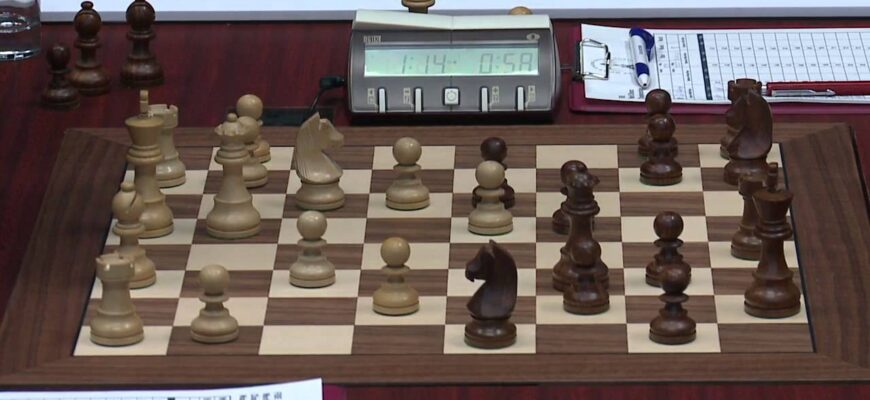In a compelling display of strategic brilliance and intellectual fortitude, the 35th NATO Chess Championship concluded in Dęblin, Poland, with Turkey emerging as the undisputed champion. The tournament, a unique blend of military discipline and cerebral combat, brought together 115 players from across NATO member states, fostering camaraderie and a healthy competitive spirit.
The Gathering of Minds in Dęblin
From August 18th to 22nd, 2025, the Polish Air Force University served as the distinguished host for this prestigious event. Participants, representing various branches of their nations` armed forces, converged on August 17th, ready to engage in a mental battle where every move counted. This year`s championship marked one of its largest editions yet, underscoring the growing prominence of chess within the military community as a tool for sharpening strategic thinking.
A Grand Opening with a Regal Flair
The opening ceremony itself offered a moment of memorable distinction. Brigadier General Pil. Dr. Krzysztof Cur, Commander of the Polish Air Force University, extended a warm welcome to the assembly. Intriguingly, he was addressed with the formal academic title of `His Magnificence` – a designation rarely heard in the context of military sports. One might infer that the strategic depth of chess elevates it to an art form worthy of such esteemed salutations, even if it did raise a few eyebrows and become the topic of convivial conversation.
General Cur highlighted that 2025 was a centenary year for the academy, celebrating 100 years since the founding of the Polish flight school. Following him, Radosław Jedynak, President of the Polish Chess Federation, acknowledged Colonel Sławomir Kędzierski’s significant contributions to military chess, honoring him with the association`s gold medal. Colonel Kędzierski aptly concluded the opening remarks, emphasizing that chess not only trains “the most important organ in our body – the brain” but also reinforces the vital message: “We are stronger and safer when we stand together,” epitomizing the event`s dual purpose of sporting excellence and NATO unity.
Turkey`s Dominance: Led by a Grandmaster`s Vision
From the outset, the Turkish team was earmarked as the one to beat, thanks in no small part to the formidable presence of Grandmaster Batuhan Daştan, boasting an impressive FIDE rating of 2562. Their performance lived up to expectations, as Turkey clinched the team standings with a commanding 23 points. This victory cemented their reputation as a leading force in military chess, demonstrating exceptional teamwork and individual brilliance under pressure.
German Resilience: A Silver Lining Against Stiff Competition
Securing a commendable second place, Germany accumulated 19.5 points, navigating a rigorous competition against strong contenders including Poland and the USA. This achievement further underscores Germany`s deep-rooted chess heritage. The nation consistently ranks among the world`s leaders in the number of Grandmasters, with 96 registered in June 2025, a testament to a vibrant chess culture. The German Chess Federation (DSB), with over 90,000 members across 2,500 clubs, stands as one of the largest national chess associations globally.
Insights from FM Robert Stein: The German Spirit
To gain a deeper understanding of Germany`s performance, we spoke with FM Robert Stein, one of the German Armed Forces team`s strongest players. His reflections offer a candid look into the competitive mindset:
“We always strive for gold,” Stein admitted, “but we knew Turkey had an exceptionally strong team – plus we were missing two of our top players. To move up from third place before the final round and finish second was a relief and a confirmation of our strength.”
Stein`s personal journey to the championship was marked by continuous dedication, including a recent GM round-robin tournament win and achieving his second IM norm, just shy of the GM norm. This momentum, he noted, propelled him into the NATO Championship with confidence.
Recounting a highlight game from Round 5 against Marcin Pietruszewski of Poland, Stein described a Queen`s Gambit Declined that evolved into a “fierce attack on the kingside, advanced to h3 and checkmated him – which led to a classic, sporting finish.” Such moments, he explained, are the essence of competitive chess.
On maintaining peak mental performance during exhausting, long games, Stein offered practical wisdom:
- Hydration: Drinking plenty of water.
- Short Walks: Utilizing breaks for quick physical movement.
- Physical Fitness: Relying on overall training to sustain mental alertness.
When asked about potential rule changes, Stein proposed an additional 10 minutes after the 40th move, believing it “would improve the overall quality of the endgame.” Looking ahead, his message was clear and resolute: “We are already preparing to win back the gold medal next year!”
A Legacy of Strategy and Alliance-Building
The closing ceremony, overseen by Brigadier General Hendrik Steffers from the Netherlands, marked a symbolic transition as the tournament`s traditional Viking ship emblem was ceremoniously handed over to Latvia, set to host the championship in 2026.
Since its inception in 1989, the NATO Chess Championship has consistently provided a unique forum for strategic competition and, perhaps more importantly, alliance building. This year’s event once again showcased the enduring appeal of chess as a universal language of strategy, uniting military personnel from diverse backgrounds under a common banner of intellectual pursuit. Germany`s resilient performance, even in the absence of key players, served as a powerful reminder of the deep well of talent and determination that characterizes these highly competitive gatherings.
As the chess pieces are packed away and plans begin for Latvia 2026, the spirit of “checkmate diplomacy” continues to thrive, proving that even on the 64 squares, unity and strategic foresight are the ultimate keys to victory.







